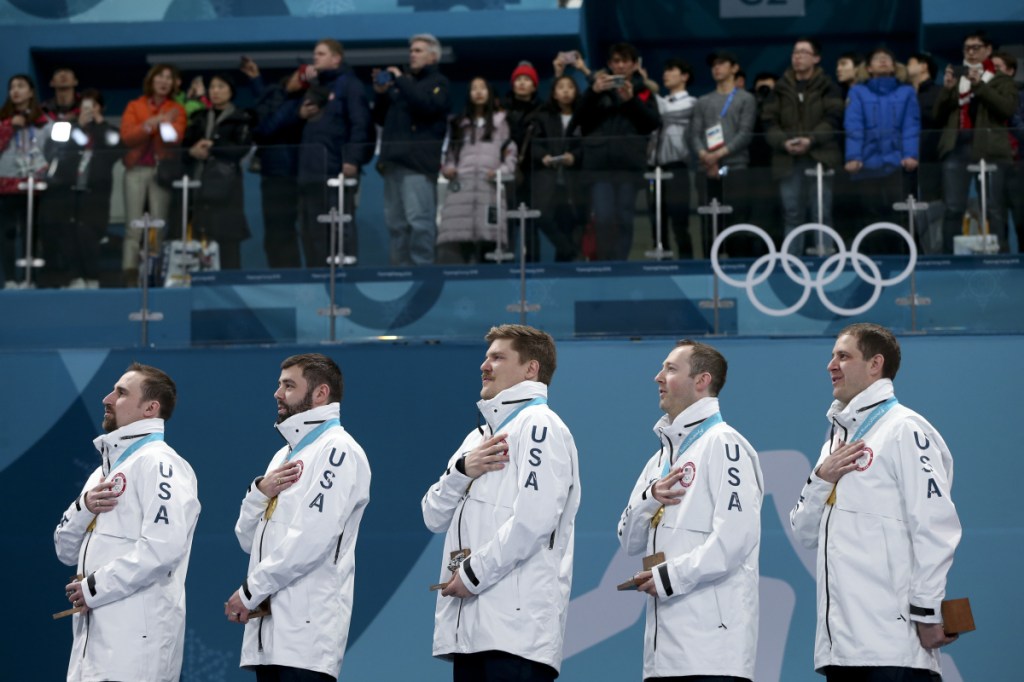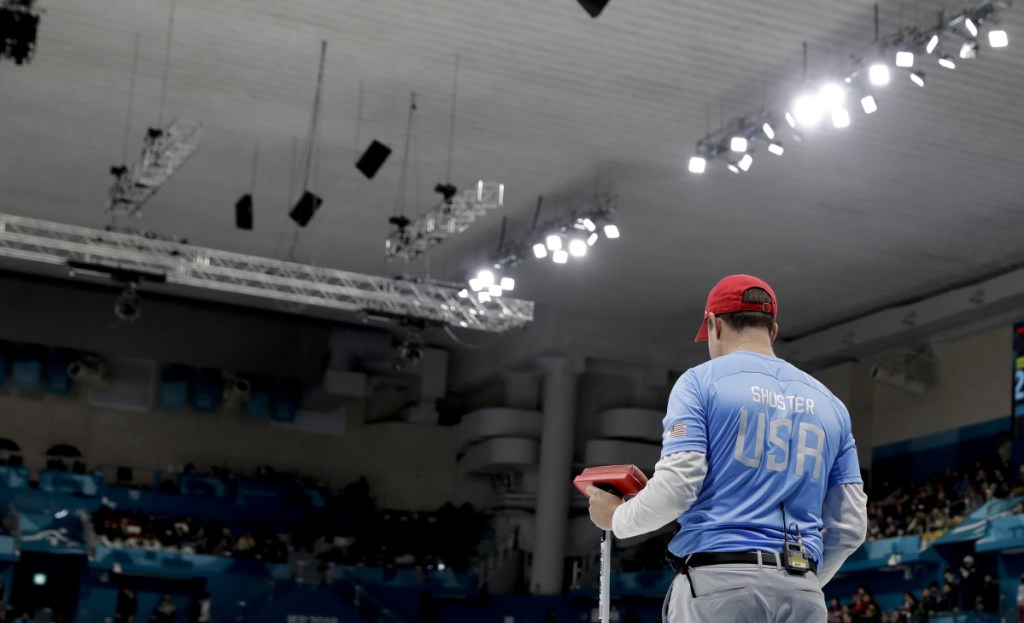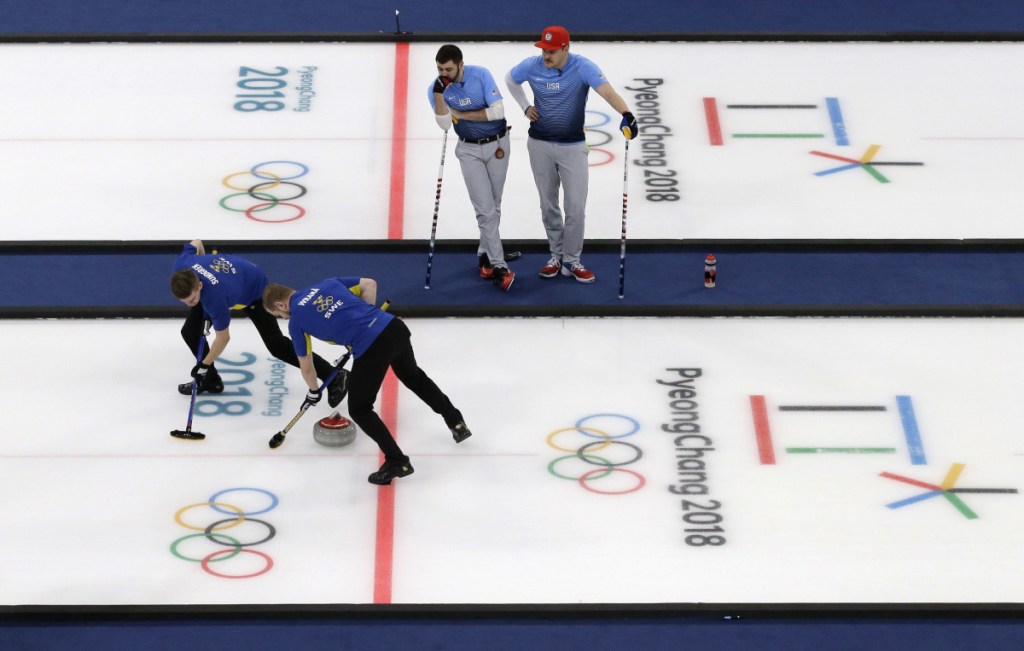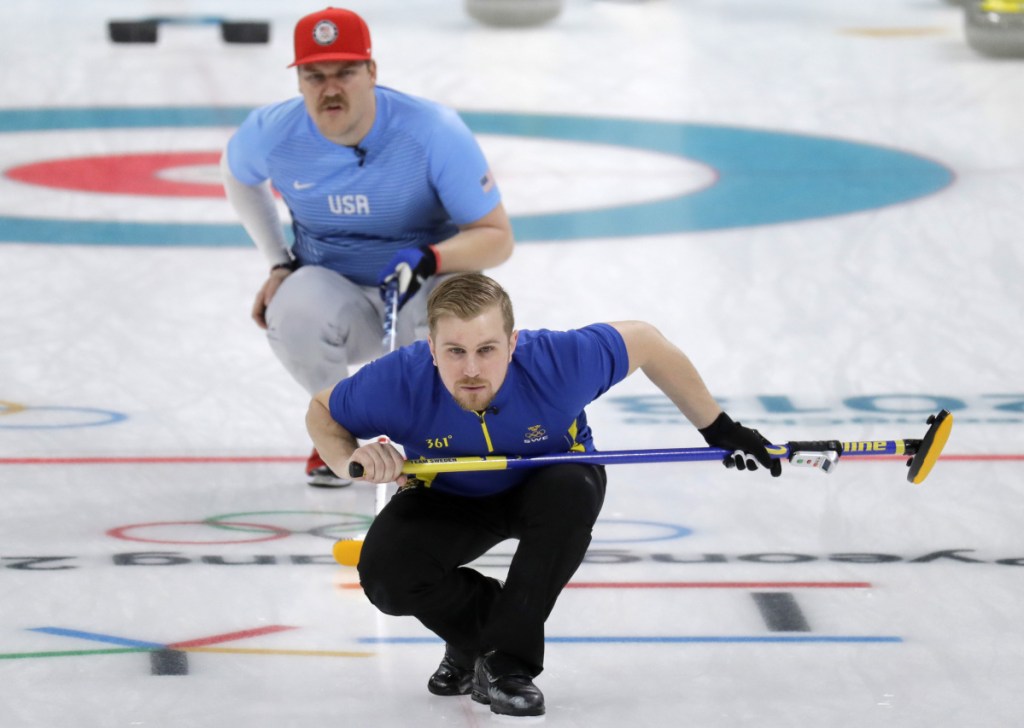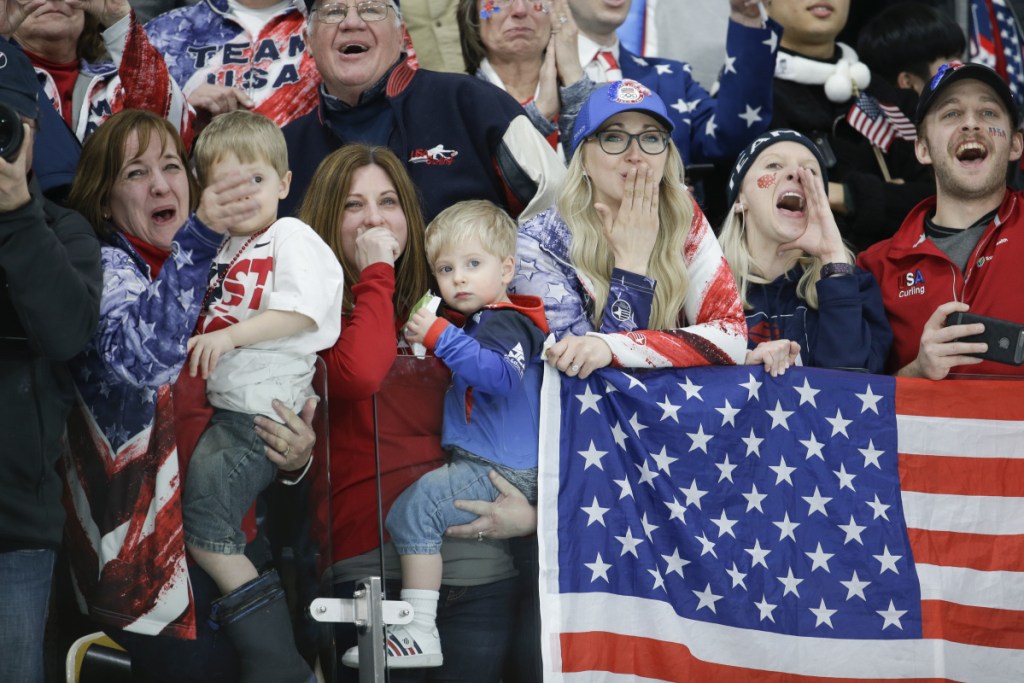GANGNEUNG, South Korea — John Shuster’s last throw in the eighth end of the Olympic curling final clacked off one Swedish stone and knocked it into another, sending them both skittering out of scoring range.
Five yellow-handled American rocks were left behind.
The score, known as a five-ender, is so rare it has only been topped once before in the history of the men’s or women’s Olympic final. And it effectively clinched gold for Shuster’s erstwhile “rejects,” who rallied from the brink of pool play elimination to claim only the second curling medal ever for the United States.
“It’s hard to rationalize wanting to do it,” vice-skip Tyler George said after the Americans beat favored Sweden 10-7 in nine ends in the gold medal match on Saturday. “But then days like this happen.”
With the King of Sweden and Ivanka Trump looking on – and bolstered by social media messages from actor Mr. T., NFL quarterback Aaron Rodgers and speedskater Dan Jansen – Shuster skipped the Americans from a 2-4 record at the start of pool play to five wins in a row, starting with a victory over three-time defending Olympic champion Canada.
No U.S. curling team, men or women, had ever beaten Canada at the Winter Games.
Shuster’s team did it again in the semifinals.
That set up a gold medal match with Sweden, the world championship runner-up and top winner in pool play, including a 10-4 victory over the Americans on Feb. 16.
After three back-and-forth ends in the final, the Swedes squandered a point in the fourth even though they had the last-rock advantage known as the hammer. (The call was too close to be made with the naked eye; an umpire measured it with a gadget that goes to the millimeter.)
From there, Sweden was playing catch-up.
Tied 5-5 in the eighth, but with the Americans controlling the hammer, Sweden skip Niklas Edin failed on a double-takeout, clearing away just one of the two stones he was aiming for. That left Shuster with a relatively mundane shot for an almost unprecedented score. (Canada’s six-ender in the 2006 men’s final was the only other score of more than four in an Olympic gold medal match).
“During the entire end we could kind of feel it building. Their margin for error got really small,” Shuster said in the news conference with teammates team Tyler George, Matt Hamilton, John Landsteiner and alternate Joe Polo. “I can’t tell you how un-nervous I was sitting in the hack to throw it. Just let it go.”
The Americans played defense in the ninth end to avoid giving up a big score. Sweden scored two, but with the hammer going to the United States for the 10th, a victory was out of reach.
On his second-to-last stone, Edin made a spin-o-rama out of the starting block, bringing laughter from the crowd.
Then he shook hands to concede the match.
“When I missed (in the eighth), we knew for sure he was going to make that double, and we knew we were going to lose,” said Edin, who said he threw in the spin to lighten the mood so that perhaps he could “get a silver medal without throwing it into the sea.”
“I don’t know if I would use the word ‘fun’ in that situation,” Edin said. “Instead of just shaking hands, it was one of those moves that you’re trying to give the crowd, all the disappointment we felt, give them a little something back.”
Sweden took the silver medal. Switzerland beat Canada in the third-place game on Friday for bronze.
South Korea will play Sweden in the women’s final on Sunday.
A four-time Olympian who won bronze in 2006 with Polo – the United States’ only other curling medal – Shuster left that team after Turin to form his own foursome and skipped them back to the Winter Games in Vancouver.
But he performed so badly he was benched, and then finished ninth of 10 teams in Sochi. After failing to make the national training program the next year, Shuster teamed up with two of the others who were cut (and George, who hadn’t even tried out) and called themselves “Team Reject.”
They beat all of the teams chosen instead of them.
“From the day the 2014 Olympics came to an end, every single day was with this journey in mind,” said Shuster, adding that he was inspired by Jansen’s ability to bounce back from six years of tragedy and Olympic failure to win his final speedskating race.
“Time and time again, he got back up and he wrote his story, and he’s an Olympic champion,” Shuster said. “I’m so proud that I was able to do something similar.”
Send questions/comments to the editors.

